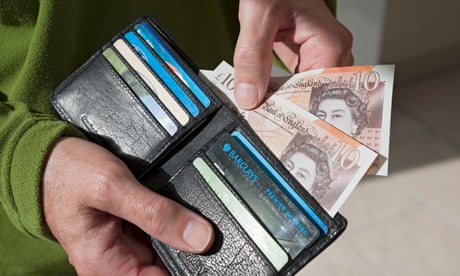More than 23 million people in the UK used virtually no cash last year, while notes and coins will account for just 6% of payments within a decade, a report predicts. The findings, from the banking body UK Finance, are likely to prompt concern that millions of people could be left behind as the shift to a cashless society accelerates. However, other data has indicated cash is making a comeback as a result of the cost of living crisis, with many under-pressure households returning to notes and coins to help them budget.
UK Finance said debit cards were the most-used method during 2021, accounting for 48% of all payments and reflecting the continued growth in popularity of contactless cards. The number of cash transactions fell by 1. 7% last year, though it remained the second most commonly used method, accounting for 15% of payments.
However, the number of people turning their backs on cash surged in 2021. This could be because some businesses went card-only during the pandemic, or stopped accepting cash for a time. There are also indications that some consumers avoided using banknotes and coins for fear they might transmit Covid.
During 2021, 23. 1 million consumers either used no notes or coins, or used them only about once a month. That was up sharply on the 13.
7 million consumers the previous year who did not use cash. That number has grown rapidly: in 2018 it was 5. 4 million people; in 2016 it was 2.
9 million. At the same time, 1. 1 million consumers used mainly cash for day-to-day shopping, according to the 2021 data.
UK Finance said it expected cash usage to continue to fall. It forecast that by 2031, notes and coins would account for only 6% of all payments made in the UK. Sign up to Business Today Free daily newsletter Get set for the working day – we’ll point you to the all the business news and analysis you need every morning Privacy Notice: Newsletters may contain info about charities, online ads, and content funded by outside parties.
For more information see our Privacy Policy . We use Google reCaptcha to protect our website and the Google Privacy Policy and Terms of Service apply. “Rather than the UK becoming a cash-free society over the next decade, the UK will transition to an economy where cash is less important than it once was but remains valued and preferred by many,” said a spokesperson.
The organisation acknowledged that some people found physical cash useful for budgeting, adding: “Given the rising cost of living, this may impact people’s use of cash over the coming months. ” This month the Post Office said its branches handled a record £801m in personal cash withdrawals during July, an increase of almost 8% on June, and 20% on the July 2021 figure. UK Finance said that almost a third of all payments in the UK were made by contactless methods in 2021, up 36% on 2020.
The report also gave an insight into the growing popularity of buy now, pay later credit. UK Finance’s research found that 12% of people used this to buy goods last year. Younger people were more likely to use the controversial form of credit than older ones, though the group that used it most was those aged 35-44.
Earlier this year it was announced that the Financial Conduct Authority would be handed powers to ensure communities across the UK had access to cash, and to fine banks that failed to comply. Responding to the findings, Natalie Ceeney, chair of the independent Access to Cash Review , said there was evidence that cash use had increased for the first time in several years as the cost of living crisis worsened and people returned to the safety of notes and coins to help them budget. She added: “It’s now widely recognised that those who rely on cash tend to be older, poorer or more vulnerable, many of whom simply can’t ‘go digital’”.
.
From: theguardian
URL: https://www.theguardian.com/money/2022/aug/18/uk-cashless-society-a-step-closer-as-more-than-23m-people-abandon-coins



